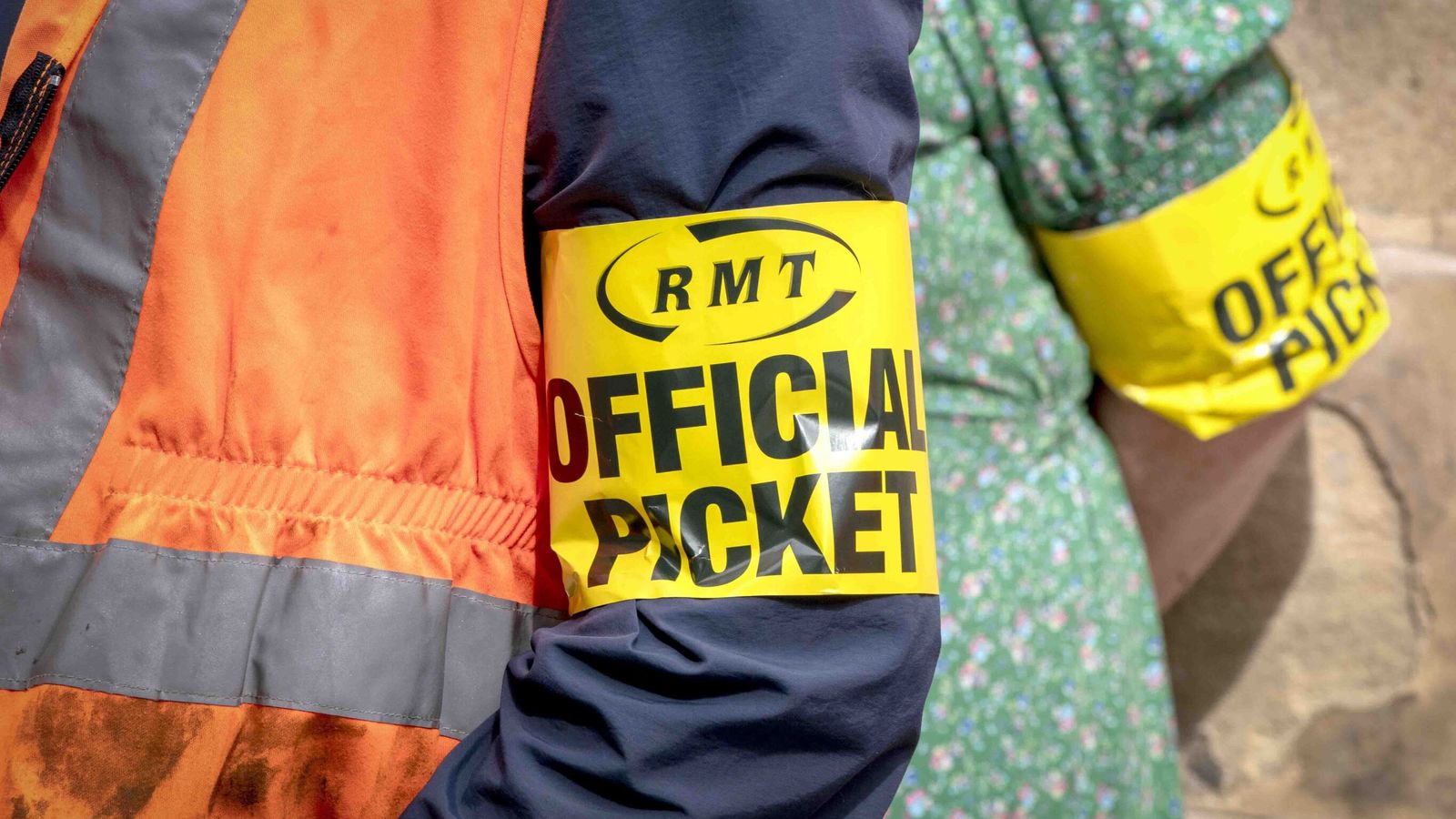Sir Keir Starmer has “not lost control of his MPs” after dozens turned out to show support for striking rail workers in defiance of his instructions, a Labour frontbencher has insisted.
Shadow foreign secretary David Lammy said that “a serious party of government does not join picket lines”.
The Labour leader has faced criticism for failing to give his unequivocal support to the industrial action by the Rail, Maritime and Transport (RMT) union over jobs, pay and conditions.
Anxious to avoid fuelling Tory claims that Labour backed the disruptive walkouts, Sir Keir has sought to blame the government and argued he did not want strikes to go ahead as he pressed for negotiated settlement.
But deputy leader Angela Rayner gave her clear backing to the industrial action, arguing workers had been “left with no choice”.
Scottish Labour leader Anas Sarwar also distanced himself from Sir Keir’s position by heading to a picket line to show his “solidarity”.
Asked what the repercussions would be for MPs who joined strikers, Mr Lammy told the BBC: “I suspect the chief whip will be speaking to them next week and making it very clear that a serious party of government does not join picket lines.”
Wakefield by-election: Labour wins back red wall seat from Conservatives
Labour’s David Lammy to be investigated by Commons watchdog
Wakefield and Tiverton & Honiton by-elections: Conservatives on the defensive in their rural heartlands and the Red Wall
Mr Lammy later said: “Keir Starmer has not lost control of his own MPs.
“We have just seen that the parties that have lost control are parties that lose votes, and I think that’s the Conservatives and the prime minister who’s lost his backbenchers.
“The Labour Party is in a strong position with strong leadership and a clear direction of travel.”
He added: “There’s no suggestion at all of dispute within the party.”
Earlier, speaking to Sky News’ Sophy Ridge On Sunday programme, Mr Lammy argued “it’s not for Labour to intervene” in the rail dispute and said it was a “matter for the government, Network Rail and the unions”.
He said: “We’re a party that’s always been concerned for working people’s interest, working people who are using our transport up and down the country who don’t want to see strikes, and of course working people working within the railways.
“This is a matter for the government, Network Rail and the unions themselves and what we’ve been absolutely clear on is the government should be leading and encouraging negotiations not stoking this dispute for their own political reasons – that’s what’s happening.
“It’s not for Labour to determine the outcome of this but it is for us to say, get around the table, negotiate.”
He added: “There are a raft of issues that workers are concerned with right across the country.
“It’s not for Labour to intervene in each one and pretend that we can negotiate or that we are on the detail of that, we aren’t is the truth of this.
“And if we were in government, we would get around the table, we would not play union.
“That is the truth of being a serious opposition that wants to eventually persuade the British people they want to run the country.”
Read more:
RMT union ‘won’t hesitate’ to take further industrial action
British Airways workers at Heathrow vote to strike during school summer holidays
Pressed if he would support strike actions from different unions, he said: “I recognise that there’s a cost of living crisis, I recognise that workers are hurting and I recognise they’ve got a government that’s not listening but I do recognise it’s a negotiation – get around the negotiation table and fix this problem.”
Also speaking to Sky News, Northern Ireland Secretary Brandon Lewis said: “People have been disrupted to get to school, to get to medical appointments, get to work.
“That isn’t good for the railways, when we have this roughly 25% drop in use of railways through COVID.”
He added: “It’s the union that’s calling the strikes.
“They are meant to be negotiating with the employers.
“We as a government are the ones putting this record levels of investment into the railway services and improving it, modernising it.”








